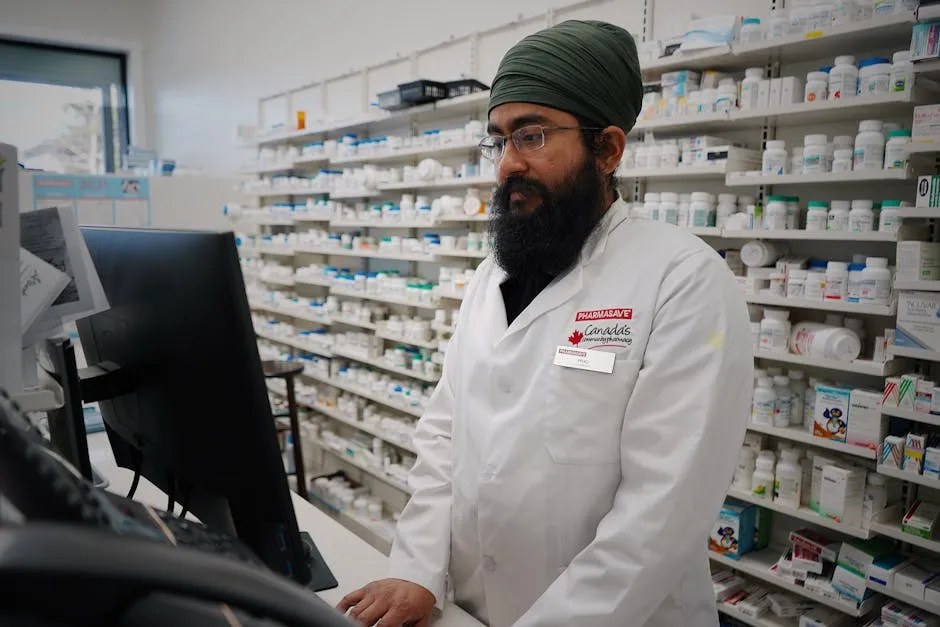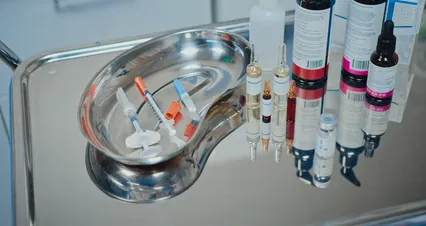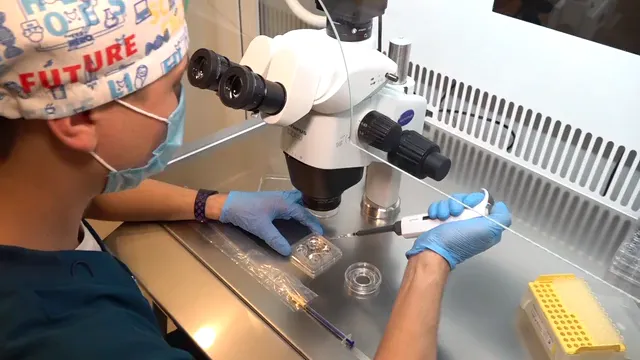Introduction
In the bustling healthcare universe, pharmacy technicians are the unsung champions. They work diligently behind the scenes, ensuring patients receive their medications safely and efficiently. As the demand for healthcare professionals continues its upward trajectory, the need for skilled pharmacy technicians is surging. But what does the future hold for these vital team members?
According to the latest statistics from the Bureau of Labor Statistics (BLS), the pharmacy technician profession is blossoming. This article will highlight crucial insights such as salary trends, job outlook, essential qualifications, and the everyday responsibilities of pharmacy technicians. Whether you’re considering a career shift, or simply curious about what it takes to be a pharmacy tech, prepare to be informed and entertained.
The median annual salary for pharmacy technicians is around $40,300. Not too shabby, right? And for those eyeing the job market, the BLS projects a robust job growth rate of 7% from 2023 to 2033. This growth is driven by factors like an aging population and an increased prevalence of chronic diseases, making pharmacy technicians essential in healthcare delivery.
So, what qualifications do you need to jump into this field? Typically, a high school diploma or equivalent is required. Many technicians gain their skills through on-the-job training or by completing a pharmacy technology program. The responsibilities vary widely—from preparing medications to managing inventory and interacting with customers.
If you’re looking to ace your certification, consider grabbing a Pharmacy Technician Certification Exam Study Guide. It’s like having a secret weapon in your pocket, guiding you through those tricky questions and ensuring you’re not left in the dust during the exam!
As we dive into the specifics, we’ll cover the full spectrum of the pharmacy technician landscape, revealing not only the responsibilities but also the rewarding aspects of this career. If you’re interested in a stable, fulfilling job that plays a key role in healthcare, grab your prescription pad—oh wait, you won’t need one! Let’s get started.

Summary
This article provides an extensive overview of the pharmacy technician profession, drawing from the latest data provided by the Bureau of Labor Statistics. Key insights include a median annual salary of $40,300, a projected job growth rate of 7% from 2023 to 2033, and various employment settings where technicians thrive. We’ll discuss the education and training necessary to enter the field, the skills required, and the nuances of working in different environments, from retail pharmacies to hospitals. By the end of this article, you’ll have a comprehensive understanding of the pharmacy technician landscape, including how to launch your career in this growing field.
Understanding the Role of Pharmacy Technicians
What Pharmacy Technicians Do
Pharmacy technicians play a crucial role in the healthcare system. They assist pharmacists in dispensing prescription medications, which is no small feat! Their duties include measuring, mixing, counting, packaging, and labeling medications according to prescription orders. They also collect information from patients, ensuring every detail is accurate.
But wait, there’s more! Pharmacy technicians don’t just work with medications. They also provide customer service, answering questions and helping patients understand their prescriptions. This means they need to be friendly and approachable, as they often serve as the first point of contact in pharmacies. Additionally, they manage inventory, ensuring that shelves are stocked and that medications are available when patients need them.
A typical day for a pharmacy technician might involve a bit of everything: filling prescriptions, assisting with insurance claims, and even answering phone calls from concerned patients. They work under the supervision of licensed pharmacists, which means they need to be detail-oriented and follow strict protocols. After all, the health and safety of patients depend on their precise work!
To aid in your daily tasks, why not invest in a reliable Digital Thermometer? It’s essential for monitoring patient health and ensuring you’re always ready to provide the best care!

Work Environment
Pharmacy technicians can be found in various settings, each with its unique vibe. The most common workplace? Retail pharmacies! These bustling environments often see a steady stream of customers needing everything from antibiotics to over-the-counter remedies. Here, technicians engage directly with the public, helping to fill prescriptions and answer queries.
But retail isn’t the only game in town. Many pharmacy technicians work in hospitals, where the pace can be faster and the responsibilities may include preparing intravenous medications and distributing them directly to patients. Outpatient clinics are another option, offering technicians the chance to work closely with healthcare providers.
Let’s not forget about the growing field of online pharmacies! As more people turn to digital platforms for their medication needs, pharmacy technicians are also finding roles in this emerging sector. They may handle administrative tasks, process orders, and ensure everything runs smoothly behind the scenes.

Key Skills Required
To thrive as a pharmacy technician, certain skills are essential. First and foremost, attention to detail is a must! With medications involved, even small mistakes can lead to serious consequences. Technicians need to be meticulous in their work, double-checking every prescription and dosage.
Communication skills are equally important. Technicians often interact with patients, pharmacists, and healthcare providers. Being able to convey information clearly and compassionately can make a significant difference in patient care. Additionally, strong organizational skills help technicians manage multiple tasks efficiently, from inventory management to processing payments.
Lastly, a solid understanding of medical terminology and basic math is beneficial. Technicians frequently calculate dosages and understand prescriptions, so being comfortable with numbers is a definite plus.
In conclusion, pharmacy technicians are vital members of the healthcare team, balancing technical duties with customer service. Their roles require a unique blend of skills and knowledge, making them indispensable in today’s healthcare landscape.

Salary Insights and Job Outlook
Current Salary Data
When it comes to salary, pharmacy technicians enjoy competitive pay. According to the Bureau of Labor Statistics (BLS), the median annual wage for pharmacy technicians as of 2023 is around $40,300. That breaks down to an hourly wage of about $19.37. Not too shabby, right?
But not all technicians earn the same. Salary can vary based on experience, location, and the type of facility they work in. For instance, the highest-paid pharmacy technicians can earn over $57,000 annually, especially those in metropolitan areas or specialized fields.
It’s also worth noting that entry-level positions may start lower, with some technicians earning around $32,720. However, as they gain experience and possibly certifications, salaries can rise significantly.

For those just starting, a good Pharmacy Technician Workbook can be an invaluable resource. It provides exercises and practice questions to help solidify your understanding and prepare you for the certification exam.
Job Growth Projections
The job outlook for pharmacy technicians is robust. The BLS projects a growth rate of 7% from 2023 to 2033, which is faster than the average for all occupations. This translates to approximately 33,300 new jobs in the field over the next decade.
Why the increase? An aging population and a rise in chronic diseases mean more people will need medications. As a result, the demand for pharmacy technicians will likely continue to grow.

Factors Influencing Pay
Several factors influence a pharmacy technician’s pay. Location plays a significant role; for example, technicians in California often earn more than their counterparts in states like Texas or Florida. Urban areas with a higher cost of living typically offer better salaries.
Experience is another factor. New technicians may start with lower wages, but as they gain experience, their pay can increase significantly. Additionally, certifications can boost earning potential. Technicians who pursue further training or specialized certifications often enjoy higher salaries and more job opportunities.
In summary, the pharmacy technician profession not only offers a stable career path but also provides solid earning potential. With a projected job growth rate of 7%, now is a great time to consider this rewarding career in healthcare.

Pathways to Becoming a Pharmacy Technician
Educational Requirements
To kickstart your journey as a pharmacy technician, a high school diploma or its equivalent is essential. This foundational education is the bare minimum. Many aspiring technicians opt for pharmacy technology programs, which can last anywhere from a few months to two years. These programs provide invaluable knowledge about medication management, drug interactions, and pharmacy law.
During training, students learn to measure, mix, and package medications. They also gain a solid understanding of healthcare practices and ethics. Hands-on experience is often included, which helps students get a real taste of the pharmacy environment. A training program not only bolsters your resume but also prepares you for the certification exams that many employers expect.
While some technicians learn on the job, completing a formal program can make you more competitive in the job market. Plus, it boosts your confidence when you step into a pharmacy for the first time. Remember, the more prepared you are, the better you’ll perform in this vital role.

Certification and Licensing
Once you’ve completed your education, it’s time to tackle the certification process. The Pharmacy Technician Certification Board (PTCB) is the most recognized certifying body. To earn the title of Certified Pharmacy Technician (CPhT), you must pass the Pharmacy Technician Certification Exam (PTCE). This exam tests your knowledge and skills in various areas, including medication safety and pharmacy law.
In many states, certification may lead to better job opportunities and higher pay. Some employers even mandate certification for all pharmacy technicians. If you wish to stand out further, consider pursuing additional certifications in specialized areas, like compounding or medication therapy management. These extra credentials can give you an edge in a competitive job market.
Most states also require pharmacy technicians to be licensed. This typically involves submitting proof of education, passing the PTCE, and sometimes undergoing a background check. Each state has its own specific requirements, so it’s wise to check your state’s regulations before applying.

On-the-Job Training
Now, let’s talk about the importance of hands-on experience. On-the-job training is a critical component of becoming a successful pharmacy technician. Even after completing your formal education, real-world experience can significantly enhance your skills. Working alongside experienced pharmacists allows you to learn the ropes and gain insight into everyday challenges.
Most employers provide moderate-term training to new hires. This training helps you become familiar with pharmacy software, inventory management, and customer service protocols. Remember, each pharmacy may have its own procedures, and adapting to these is key to your success.
Continuing education is another crucial aspect of this profession. As the healthcare landscape evolves, staying up-to-date with new medications and regulations is vital. Many states require pharmacy technicians to complete a certain number of continuing education hours to maintain their licensure. This helps ensure that you provide the best care possible and stay informed about industry changes.
In summary, the pathway to becoming a pharmacy technician involves a combination of education, certification, and hands-on training. By investing in your education and remaining committed to continuous learning, you’ll set yourself up for a rewarding career in healthcare.

Employment Trends and Industry Analysis
Where Pharmacy Technicians Work
Pharmacy technicians find employment across various sectors. The majority work in retail pharmacies, where they comprise over half of the workforce. Here, they assist customers, fill prescriptions, and manage inventory. Retail pharmacy positions are typically full-time, but many technicians also work part-time.
Another significant sector is hospitals, where pharmacy technicians play a crucial role in patient care. In hospitals, they prepare intravenous medications and manage medication distribution. This environment is often faster-paced, requiring technicians to adapt quickly to changing demands.
Additionally, pharmacy technicians can be found in outpatient clinics, nursing homes, and even online pharmacies. The rise of telepharmacy has opened new doors for technicians to work remotely, providing services to patients without needing a physical presence. This trend highlights the adaptability of the role in an ever-changing healthcare landscape.

Geographic Distribution
When it comes to geographic distribution, certain states and metropolitan areas shine brighter than others. California takes the lead, employing over 41,000 pharmacy technicians with competitive salaries averaging around $55,710 annually. Texas and Florida also have high employment levels, with thousands of technicians working in diverse settings.
Cities like New York, Chicago, and Los Angeles boast significant populations of pharmacy technicians. These urban centers offer not only numerous job opportunities but also higher pay scales. The concentration of hospitals, retail pharmacies, and specialized clinics in these areas drives demand for skilled technicians.

Comparison with Similar Occupations
How do pharmacy technicians stack up against similar healthcare roles? Their job outlook remains solid. For instance, medical assistants are projected to grow by 15%, while pharmacy technicians are expected to see a 7% increase in job opportunities through 2033.
When comparing salaries, pharmacy technicians generally earn a decent living. The median salary of about $40,300 is competitive, especially considering the relatively short training period. In contrast, dental assistants and phlebotomists earn similar pay but may require longer educational paths.
In summary, pharmacy technicians enjoy diverse employment opportunities across various sectors, particularly in retail and hospital settings. With a positive job outlook and competitive salaries, this profession remains a promising choice for those seeking a stable and fulfilling career in healthcare.

The Future of Pharmacy Technicians
Emerging Trends in the Field
The landscape of pharmacy technicians is transforming thanks to technology. Innovations like automated dispensing systems are making medication management more efficient. These systems help reduce human error, ensuring patients receive the right medications at the right time. It’s like having a trusty sidekick—just without the cape!
Telepharmacy is another exciting trend. This allows technicians to assist in remote settings, providing services to patients who can’t visit a pharmacy. Imagine a pharmacist in a lab coat offering advice from a cozy office while technicians handle the nitty-gritty preparations. This shift broadens the scope of pharmacy technicians and enhances patient care, especially in rural areas.
Changes in healthcare delivery are also reshaping the role. As more healthcare services move to outpatient settings, pharmacy technicians are stepping up. They’re not just filling prescriptions; they’re becoming integral to patient education and chronic disease management. Technicians are now helping patients understand their medications, ensuring adherence, and providing vital support.
Moreover, the aging population is a significant driver of change. As baby boomers retire, the demand for medications increases. Pharmacy technicians will be at the forefront, managing the influx of prescriptions and ensuring patients receive quality care.

Career Advancement Opportunities
For pharmacy technicians, the future is bright with career growth. Many start in entry-level positions, but the sky’s the limit! With experience and additional training, technicians can advance to roles such as pharmacy manager or even pharmacist with the right education.
Specialization is another avenue for growth. Technicians can pursue certifications in areas like compounding, oncology, or medication therapy management. These specialties can lead to higher pay and more satisfying work. Plus, who wouldn’t want to be known as the go-to expert in a specific area?
Continuing education is essential for career advancement. Many states require ongoing training to maintain certification. This commitment to learning not only keeps technicians up-to-date but also opens doors to new opportunities.
In summary, the future of pharmacy technicians is filled with promise. With emerging trends in technology and healthcare delivery, along with abundant pathways for advancement, this career is set for growth. So, if you’re considering this field, now’s the perfect time to jump in and ride the wave of change!

Conclusion
In conclusion, the pharmacy technician profession offers a stable career path, impressive earning potential, and a robust job outlook. With a median annual salary of about $40,300 and a projected job growth rate of 7% from 2023 to 2033, pharmacy technicians are in high demand. This growth is primarily driven by an aging population and an increased need for medications.
Pharmacy technicians play a crucial role in patient care. They ensure medications are dispensed safely, provide essential support to pharmacists, and enhance patient education. This profession is not merely about filling prescriptions; it’s about making a meaningful impact in healthcare.
If you’re contemplating a career in this field, now is an excellent time to pursue the necessary education and training. Many programs are available, offering the skills and knowledge needed to succeed. Certifications can further boost your employability and earning potential.
Moreover, with the continuous evolution of technology and healthcare delivery systems, pharmacy technicians will only become more vital. The future looks promising, with ample opportunities for growth and specialization.
So, if you’re ready to embark on a fulfilling career that combines healthcare with meaningful patient interaction, pharmacy technician roles await. The healthcare world needs you, and you’re sure to make a difference!
FAQs
What does a pharmacy technician do?
Pharmacy technicians are the backbone of any pharmacy. They assist pharmacists in dispensing medications to patients and healthcare professionals. Daily responsibilities include measuring, mixing, counting, packaging, and labeling medications according to prescriptions. Technicians also gather patient information, ensuring accuracy before medications are handed over. But wait, there’s more! They handle customer service, answering questions and helping patients understand their prescriptions. Imagine being the friendly face that guides someone through the maze of medications! Additionally, pharmacy technicians manage inventory, keeping shelves stocked, and alerting pharmacists when supplies run low. Their tasks vary, but each day is packed with meaningful interactions and vital responsibilities.
How much do pharmacy technicians make?
Money talk! The median annual salary for pharmacy technicians stands at about $40,300. That translates to roughly $19.37 per hour, which isn’t too shabby, right? However, salaries can vary widely based on several factors. Location plays a big role—technicians in California, for instance, can earn an average of $55,710 annually. Experience also matters; entry-level positions might start at around $32,720, but seasoned technicians can make over $57,000. Certifications can boost earning potential too. So, if you’re considering a career in this field, know that your paycheck could grow as you gain experience and skills.
What qualifications do I need to become a pharmacy technician?
To become a pharmacy technician, a high school diploma or equivalent is essential. Many aspiring technicians choose to complete a pharmacy technology program, which can last anywhere from a few months to two years. These programs cover key topics, such as medication management and pharmacy law. While some technicians learn on the job, formal training can enhance job prospects. After education, certification is often required. The Pharmacy Technician Certification Board (PTCB) is the go-to body for certification, ensuring you have the knowledge to excel in this role. So, buckle up for some study time!
Is there a demand for pharmacy technicians?
Absolutely! The demand for pharmacy technicians is soaring. The Bureau of Labor Statistics projects a growth rate of 7% from 2023 to 2033. This rate is faster than the average for most occupations. With an aging population and rising chronic diseases, the need for skilled pharmacy technicians is more crucial than ever. Approximately 33,300 new jobs are expected to appear annually, mainly due to retirements and career shifts. So, if you’re considering this career path, rest assured you’re entering a market ripe with opportunities!
Can pharmacy technicians advance in their careers?
Yes, they can! Pharmacy technicians have various pathways for advancement. While many start in entry-level roles, they can move up to positions such as pharmacy manager or even pharmacist with further education. Specialization is another option. By obtaining certifications in areas like compounding or medication therapy management, technicians can enhance their expertise and earning potential. Continuing education is vital too, as many states require ongoing training to maintain certification. So, the sky’s the limit for those eager to grow in this dynamic field!
If you’re interested in adding some flair to your workspace, consider a Desk Organizer. It can help you keep your tools in check while you tackle those pharmacy challenges!
Please let us know what you think about our content by leaving a comment down below!
Thank you for reading till here 🙂
All images from Pexels




